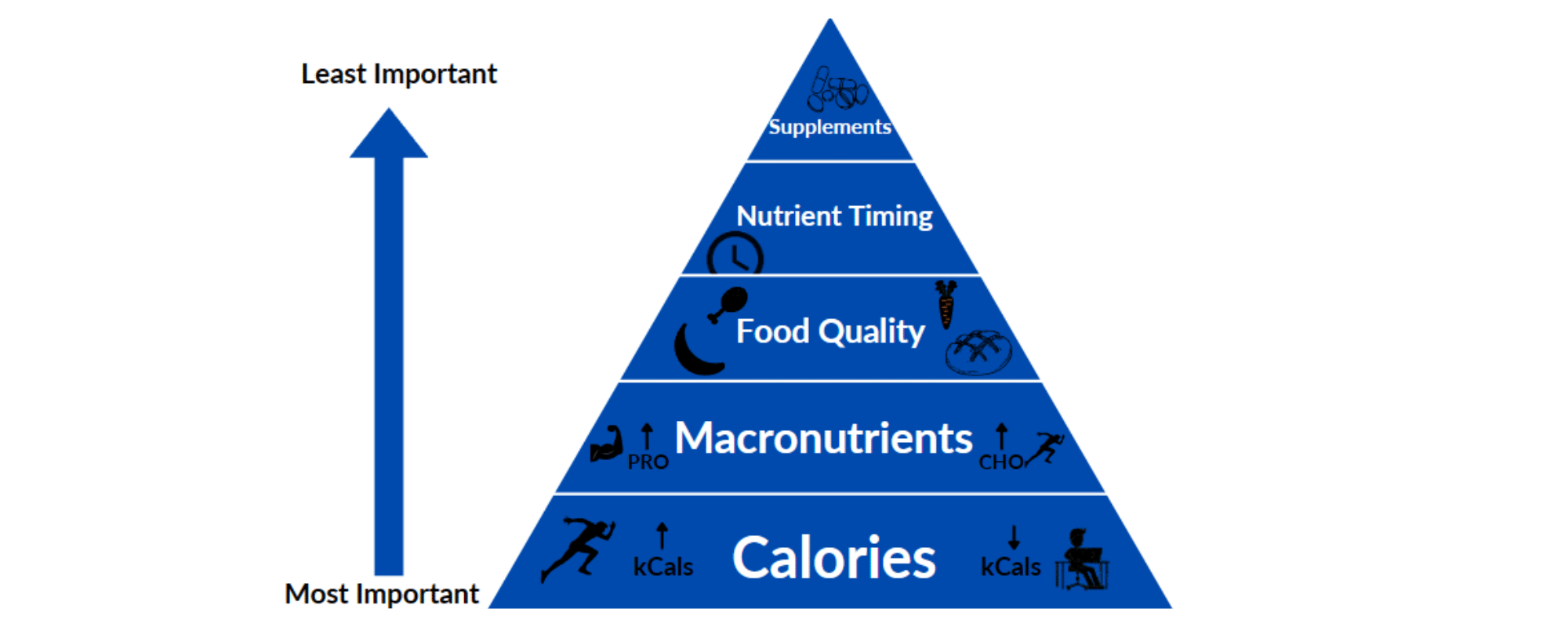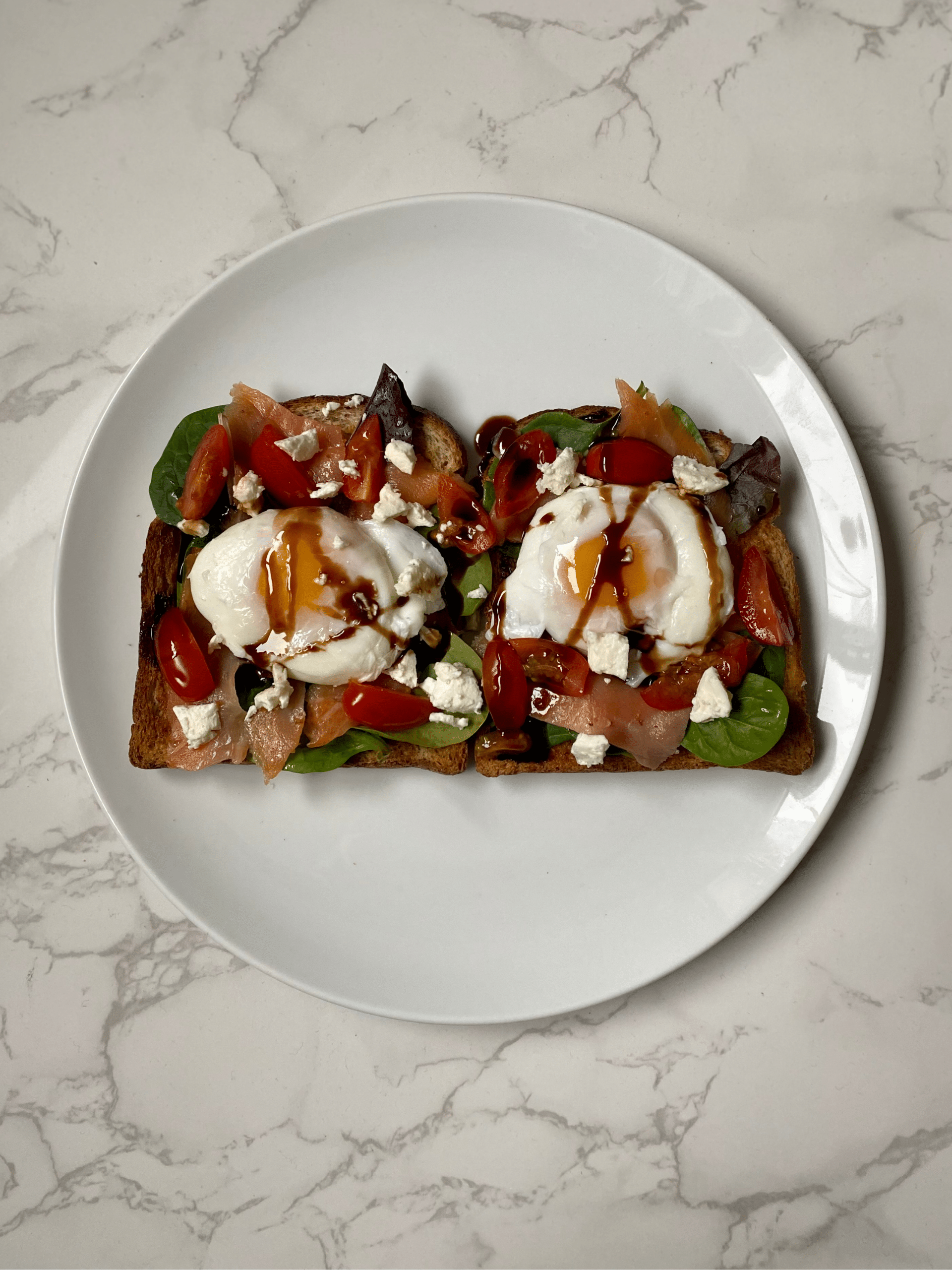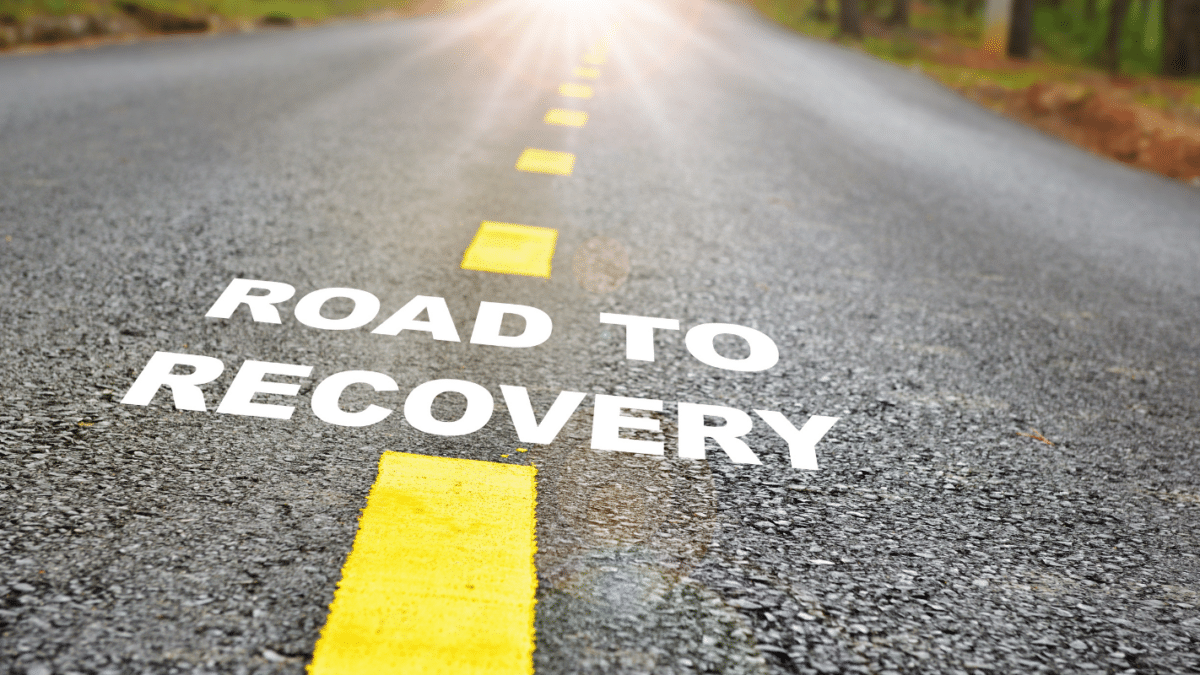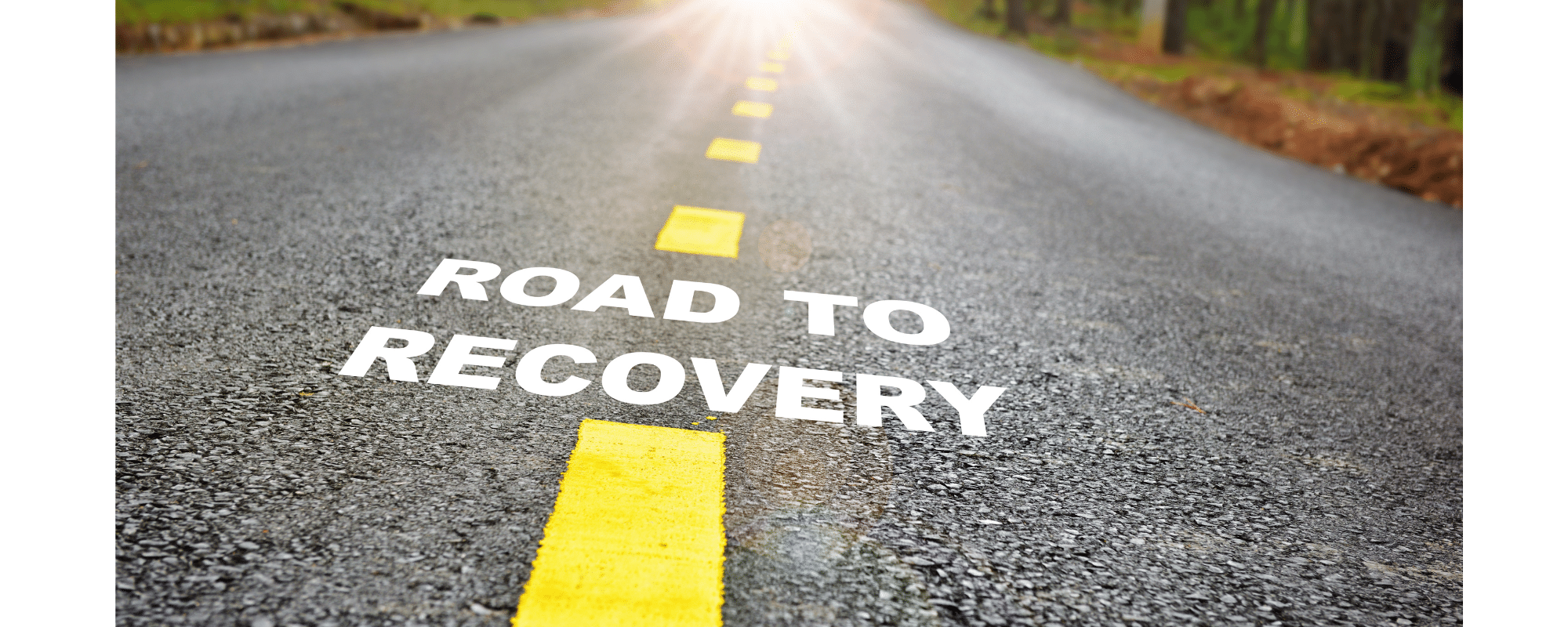There is no magic cure or potion for a quick recovery from injury, but there are evidence based nutrition strategies that support healing and aid recovery. Injury recovery can be a long, difficult and frustrating process, but effective nutrition strategies can play a crucial role in supporting the healing process and ensuring a speedy recovery. Research shows that adequate nutrition strategies can reduce the risk of surgical complications, minimise muscle loss during injury recovery and maximise return to play (Smith-Ryan et al., 2020).
Mindset
Coming to terms with being injured is not easy, but having an appropriate nutrition plan and set routine will help to provide structure to each day and help to combat the frustration associated with the injury. It can be beneficial to set goals and targets that are interesting and motivational to help keep you on track. For example, aim to improve aspects of your lifestyle, like sleep, cooking skills, mindfulness and nutrition knowledge that will improve skills and make you a better all-round athlete.
Hierarchy of Nutrition in Recovery

Most important to least important elements to focus on during injury recovery
Energy Balance & Energy Requirements (calories)
Under-fueling, i.e. not eating enough calories, at the beginning of an injury is common as you are adapting to an unexpected situation. This is a typical way people negatively impact the healing process. There is a misconception that because you are not exercising, you do not need to eat as much. Sufficient energy is needed for repair of the injured site, however, if energy intake is too high, large fat deposition can occur.
Macronutrients
Consume Enough Protein
Protein is critical for optimum healing from injury, so the requirement during recovery increases. This can help prevent the loss of lean muscle mass and strength during your injury. Focus on the amount, type and timing of protein intake throughout the day. Research suggests protein recommendations of 1.8-2.2 grams of protein per kg bodyweight per day & emphasises consuming leucine-rich foods (e.g, lean meat, poultry, fish, dairy products, beans, lentils, and soy products).
Lean Mass – Your currency for performance & health
As a consequence to an injury, there will be a loss of lean muscle mass, predominantly in the affected limb. Lean muscle mass is essentially the pure muscle weight without fat. Studies have shown muscle mass loss of ∼3 kg from the injured leg in even highly trained athletes during the period of immobilisation following ACL surgery (Milsom et al., 2014). Implementing nutrition strategies during the first 2 weeks post injury is crucial, as this is when muscle losses are most significant. The importance of this period can often be overlooked by athletes, so I often frame it to them that they can lose vital lean muscle mass 2-3 times faster during these weeks than they can build it at the end of the rehabilitation period. The more you can retain, the less you need to rebuild. Use this as a motivating factor to keep you focused on your nutrition throughout your recovery.
Eat Enough Carbohydrates
Carbohydrates act as the primary energy source for the body. A guideline to follow is 1-1.5g carbohydrate per kg bodyweight per day. Carbohydrate intake is essential during periods of heavy training, but there is a lower requirement for carbohydrates during injury. Avoid refined & starchy carbs such as processed cereals, sweets and white rice/pasta. Carbohydrates should be sourced from unprocessed sources like fruit, vegetables and whole grain bread and rice.
Incorporate Healthy Fats
Fats are essential for providing energy as well as the development of vital hormones involved in the recovery process. They play a role in controlling inflammation, so focusing on anti-inflammatory foods with monounsaturated fats and omega-3 fats is key. Aim to include 2 of these healthy fats daily: Avocado, Olive oil, Mixed nuts, Nut butters, Fatty fish and Flax seeds/oil.
Recipes with healthy fats:
Stay Hydrated
Hydration is always important, and even more so during periods of injury & recovery. Regular consumption of water during the recovery period helps to remove waste products from the injured tissue & maintain fluid balance. Being injured or going through surgery can lead to a significant loss of fluid, so greater fluid intake is required to replace fluid that is lost. Simple ways to increase your fluid intake are:
- Sip on water throughout the day
- Eat foods with water in them – fruit & vegetables
- Rehydrate as soon as possible after waking up
- Top Tip: Buy a bottle you like and keep it with you!
Consume Antioxidant & Anti-inflammatory Foods
An antioxidant has the potential to delay or prevent the inflammatory process, and essential fatty acids, in particular omega 3, reduce levels of inflammation. Turmeric, ginger, garlic, pineapple, pomegranate, green tea & other fresh vegetables, herbs and spices also support the healing process. Antioxidant-rich foods include dark chocolate, pecans, berries, beetroot, spinach and black/kidney beans. It can be very simple to include antioxidants into your diet by not overcomplicating things. Try:
- Add berries to your porridge or cereal.
- Have a square of dark chocolate with your tea/coffee.
- Put spinach into your pasta dish.
- Have a handful of nuts as a small snack.
The Daveynutrition website has an abundance of recipes that contain both antioxidant-rich and anti-inflammatory foods.
- Flaxseed porridge with cacao nibs
- Strawberry & pomegranate salad
- Pineapple & turmeric curry
- Chorizo & garlic pasta
Supplements
It is important to note that supplements are not what you should prioritise during recovery, but they can certainly aid your recovery alongside the correct nutrients.
- Get organised: Once you are aware of the best supplements needed for your personal recovery, organise them into a box so you know how much to take.
- Establish a routine: Take supplements at the same time daily (e.g, with breakfast). Establishing this routine minimises the chance of you forgetting to take your supplements.
Generally Recommended Supplements:
- Whey protein – 1-2 scoops daily may help achieve daily protein needs.
- Omega 3 oils – 1-2g supplemented per day may help to manage inflammation.
- Probiotics – Support optimum gut health & immune function.
- HMB (short for β-Hydroxy β-Methylbutyrate) – 3g daily, may help to limit muscle wasting.
- Collagen – 15g daily, can support tendon and ligament healing
- Vitamin D: 10mg per day supplemented aids in calcium absorption to maintain bone strength.
Collagen
Collagen is vital for the strength & regeneration of tissue. Research supports using a dose of 10-15g daily for several months. Subjects who consumed 15 g of gelatin showed twice the collagen synthesis, as either a placebo or a 5g gelatin group. Consuming gelatin or hydrolyzed collagen may increase collagen synthesis & potentially decrease injury rate in athletes (Shaw et al., 2017). To achieve the benefits from collagen supplementation, it needs to be taken over a prolonged period (i.e., months rather than weeks!) It is important that collagen is provided in recipes & meals you enjoy such as, smoothies, protein bars, protein balls or flavoured yoghurts. Try including it in some of my smoothies or smoothie bowls recipes.
Using gelatin, like in our orange split jellies, in place of collagen is certainly a good (and cheaper!) second option. Make flavoured gelatin shots & bites & consume them 1 hour before your rehabilitation session. Just make sure you consume at least 15g.
Calcium & Vitamin D
Calcium maintains bone strength, making it essential when recovering from a bone injury. Calcium can’t be absorbed by the body unless you have sufficient Vitamin D levels. Supplementation of 10mg of Vitamin D per day is recommended for everyone. Calcium can be obtained from dairy sources (milk, yoghurt, cheese) and non-dairy sources (leafy green veg, soybeans, fortified foods). Sources of Vitamin D include egg yolk, beef, liver, fatty fish, mushrooms and fortified foods.
Summary of Recommendations
- Frequency: Eat every 3-4 hours.
- Protein: Each meal/snack should contain complete protein (lean meats, dairy, fish)
- Fruit & Vegetables: 1-2 servings of fruit or veg per meal/snack.
- Carbohydrates: Whole grain, minimally processed sources (whole oats, sweet potatoes, beans & legumes, whole grain rice, quinoa).
- Fats: At least 2-3 healthy fats each day (avocadoes, olive oil, mixed nuts, fatty fish, flax seeds, & flax oil).
- Anti-inflammatory foods: Include curry powder/turmeric, garlic, pineapple, cocoa, tea, blueberries.
- Supplements: Collagen, Whey protein, Vitamin D, Omega 3 oils, HMB and Probiotics can all impact recovery.
Reference list
Hirsch, K.R., Wolfe, R.R. and Ferrando, A.A. (2021). Pre- and Post-Surgical Nutrition for Preservation of Muscle Mass, Strength, and Functionality Following Orthopedic Surgery. Nutrients, 13(5), p.1675. doi:https://doi.org/10.3390/nu13051675.
Milsom, J., Barreira, P., Burgess, D.J., Iqbal, Z. and Morton, J.P. (2014). Case Study: Muscle Atrophy and Hypertrophy in a Premier League Soccer Player During Rehabilitation From ACL Injury. International Journal of Sport Nutrition and Exercise Metabolism, 24(5), pp.543–552. doi:https://doi.org/10.1123/ijsnem.2013-0209.
Shaw, G., Lee-Barthel, A., Ross, M.L., Wang, B. and Baar, K. (2016). Vitamin C–enriched gelatin supplementation before intermittent activity augments collagen synthesis. The American Journal of Clinical Nutrition, [online] 105(1), pp.136–143. doi:https://doi.org/10.3945/ajcn.116.138594.









